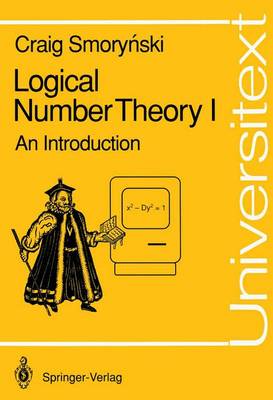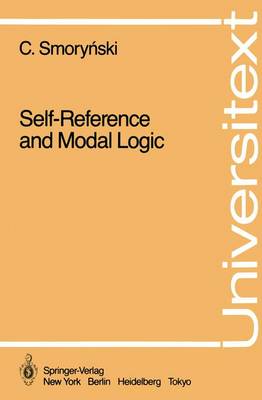Universitext
1 primary work • 3 total works
Book 2
Number theory as studied by the logician is the subject matter of the book. This first volume can stand on its own as a somewhat unorthodox introduction to mathematical logic for undergraduates, dealing with the usual introductory material: recursion theory, first-order logic, completeness, incompleteness, and undecidability. In addition, its second chapter contains the most complete logical discussion of Diophantine Decision Problems available anywhere, taking the reader right up to the frontiers of research (yet remaining accessible to the undergraduate). The first and third chapters also offer greater depth and breadth in logico-arithmetical matters than can be found in existing logic texts. Each chapter contains numerous exercises, historical and other comments aimed at developing the student's perspective on the subject, and a partially annotated bibliography.
It is Sunday, the 7th of September 1930. The place is Konigsberg and the occasion is a small conference on the foundations of mathematics. Arend Heyting, the foremost disciple of L. E. J. Brouwer, has spoken on intuitionism; Rudolf Carnap of the Vienna Circle has expounded on logicism; Johann (formerly Janos and in a few years to be Johnny) von Neumann has explained Hilbert's proof theory-- the so-called formalism; and Hans Hahn has just propounded his own empiricist views of mathematics. The floor is open for general discussion, in the midst of which Heyting announces his satisfaction with the meeting. For him, the relationship between formalism and intuitionism has been clarified: There need be no war between the intuitionist and the formalist. Once the formalist has successfully completed Hilbert's programme and shown "finitely" that the "idealised" mathematics objected to by Brouwer proves no new "meaningful" statements, even the intuitionist will fondly embrace the infinite. To this euphoric revelation, a shy young man cautions~ "According to the formalist conception one adjoins to the meaningful statements of mathematics transfinite (pseudo-')statements which in themselves have no meaning but only serve to make the system a well-rounded one just as in geometry one achieves a well rounded system by the introduction of points at infinity.


